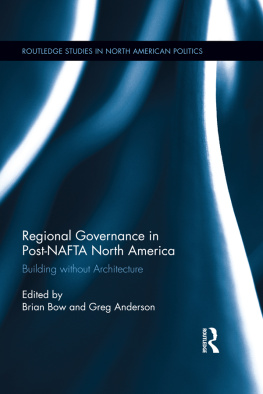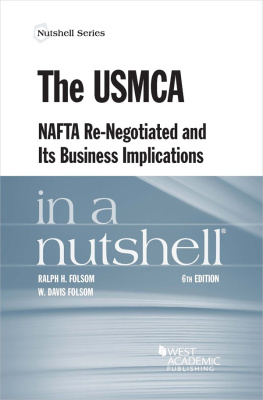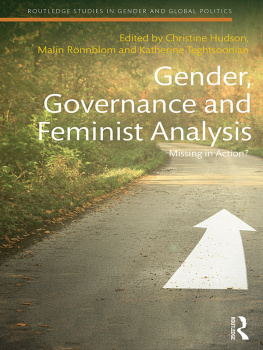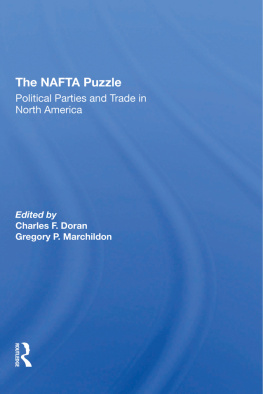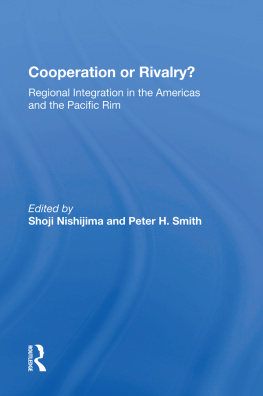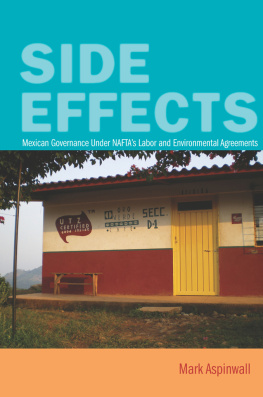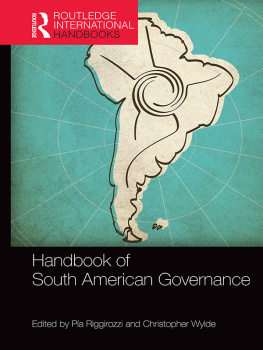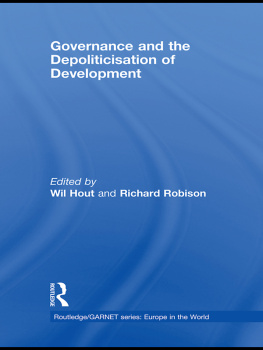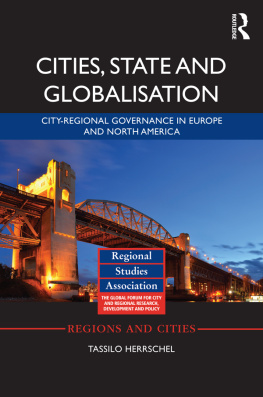Regional Governance in Post-NAFTA North America
Twenty years after NAFTA, the consensus seems to be that the regional project in North America is dead. The trade agreement was never followed up by new institutions that might cement a more ambitious regional community. The Security and Prosperity Partnership (SPP), launched with some fanfare in 2005, was quietly discontinued in 2009. And new cooperative ventures like the USCanada Beyond the Border talks and the USMexico Merida Initiative suggest that the three governments have reverted to the familiar, preNAFTA pattern of informal, incremental bilateralism. One could argue, however, that while NAFTA itself has been buried, the region somehow lives on, albeit in a form very different from regional integration in other parts of the world.
A diverse group of contributors, from the US, Canada, and Mexico, with experience in academia, government service, think tanks, and the private sector bring to bear a sophisticated and much-needed examination of regional governance in North America, its historical origins, its connection to the regional distribution of power and the respective governments domestic institutions, and the variance of its forms and function across different issue areas. The editors begin by surveying the literature on North American regional politics, matching up developments there with parallel debates and controversies in the broader literatures on comparative regional integration and international policy coordination more generally. Six contributors later explore the mechanisms of policy coordination in specific issue-areas, each with an emphasis on a particular set of actors, and with its own way of characterizing the relevant political and diplomatic dynamics. Chapters on the political context for regional policy coordination follow, leading to concluding remarks on the future of North America.
At a time when scholarly interest in North America seems to be waning, even while important and interesting political and economic developments are taking place, this volume will reinvigorate the study of North America as a region, to better understand its past, present, and future.
Brian Bow is Associate Professor of Political Science at Dalhousie University. He is the author of The Politics of Linkage: Power, Interdependence and Ideas in Canada-US Relations (2009), which was awarded the Donner Prize as the best public policy book published in Canada that year. He has also published a number of articles and chapters on US-Canada relations, Canadian foreign policy, and regional integration, and has co-edited volumes on North American security cooperation and Canadian foreign policy.
Greg Anderson is Associate Professor of Political Science at the University of Alberta. He is the author of numerous articles on North American integration, international political economy, and US foreign economic policy. He was co-editor, with Christopher Sands, of Forgotten Partnership Redux: Canada-US Relations in the 21st Century (2012).
Routledge Studies in North American Politics
1 Political Institutions and Lesbian and Gay Rights in the United States and Canada
Miriam Smith
2 Black Women, Cultural Images and Social Policy
Julia S. Jordan-Zachery
3 How Courts Impact Federal Administrative Behavior
Robert J. Hume
4 State Failure, Underdevelopment, and Foreign Intervention in Haiti
Jean-Germain Gros
5 Mexico-United States Relations
The Semantics of Sovereignty
Arturo Santa-Cruz
6 Federalism, Secession, and the American State
Divided, We Secede
Lawrence M. Anderson
7 The State and Security in Mexico
Transformation and Crisis in Regional Perspective
Edited by Brian Bow and Arturo Santa-Cruz
8 North American Integration
An Institutional Void in Migration, Security and Development
Edited by Gaspare M. Genna and David A. Mayer-Foulkes
9 Regional Governance in Post-NAFTA North America
Building without Architecture
Edited by Brian Bow and Greg Anderson
First published 2015
by Routledge
711 Third Avenue, New York, NY 10017
and by Routledge
2 Park Square, Milton Park, Abingdon, Oxon OX14 4RN
Routledge is an imprint of the Taylor & Francis Group, an informa business
2015 Taylor & Francis
The right of the editors to be identified as the author of the editorial material, and of the authors for their individual chapters, has been asserted in accordance with sections 77 and 78 of the Copyright, Designs and Patents Act 1988.
All rights reserved. No part of this book may be reprinted or reproduced or utilized in any form or by any electronic, mechanical, or other means, now known or hereafter invented, including photocopying and recording, or in any information storage or retrieval system, without permission in writing from the publishers.
Trademark Notice: Product or corporate names may be trademarks or registered trademarks, and are used only for identification and explanation without intent to infringe.
Library of Congress Cataloging-in-Publication Data
Regional governance in post-NAFTA North America : building without
architecture / edited by Brian Bow and Greg Anderson.
pages cm. (Routledge studies in North American politics ; 9)
Includes bibliographical references and index.
1. RegionalismPolitical aspectsNorth America. 2. North
AmericaPolitics and government21st century. 3. North America
Foreign relations. 4. North AmericaForeign economic relations.
5. North AmericaEconomic integrationPolitical aspects. 6. North
American Free Trade Agreement (1992 October 7). I. Bow, Brian J.,
author, editor of compilation. II. Anderson, Greg, 1969 author, editor
of compilation.
JJ1010.R45 2014
382.917dc23
2014021207
ISBN: 978-1-138-77687-6 (hbk)
ISBN: 978-1-315-77299-8 (ebk)
Typeset in Sabon
by Apex CoVantage, LLC
Contents
BRIAN BOW AND GREG ANDERSON
DEBORA VanNIJNATTEN AND NEIL CRAIK
JASON ACKLESON AND YOSEF LAPID
RUBEN ZAIOTTI
STEPHEN CLARKSON
CHRISTOPHER J. KUKUCHA
ISIDRO MORALES
GEOFFREY HALE
BRIAN BOW AND ARTURO SANTA CRUZ
STEPHEN BLANK
GREG ANDERSON AND BRIAN BOW
This volume is dedicated to the memory of a great colleague and mentor, Robert A. Pastor, the founding director of the Center for North American Studies at American University. Bob was an extraordinary role model and friend, having played the game at the highest levelin public service, in academia, and in the service of great causes he believed inbut still generous with his time and energies with those just starting out on their own paths. He could be combative and inflexible, but right behind that sharp edge, there was always openness and warmth, an infectious delight in problem solving and debate, and an irrepressible sense of humor. Bobs doctors told him in 2010 that he had stage 4 cancer, and only a few months to live, but that hardly seemed to slow him down. When we first approached him about contributing to this volume, we were a little hesitant, but Bob jumped in with both feet, and immediately set about challenging (and thereby improving) the core premises and structure of the project itself. We deeply regret that he was not able to complete his contribution to this volume, which built on ideas and evidence from his last book, The North American Idea (Oxford 2011). Bobs passing leaves a big hole in the community of scholars working on regional issues in North America, and he will be sorely missed.

